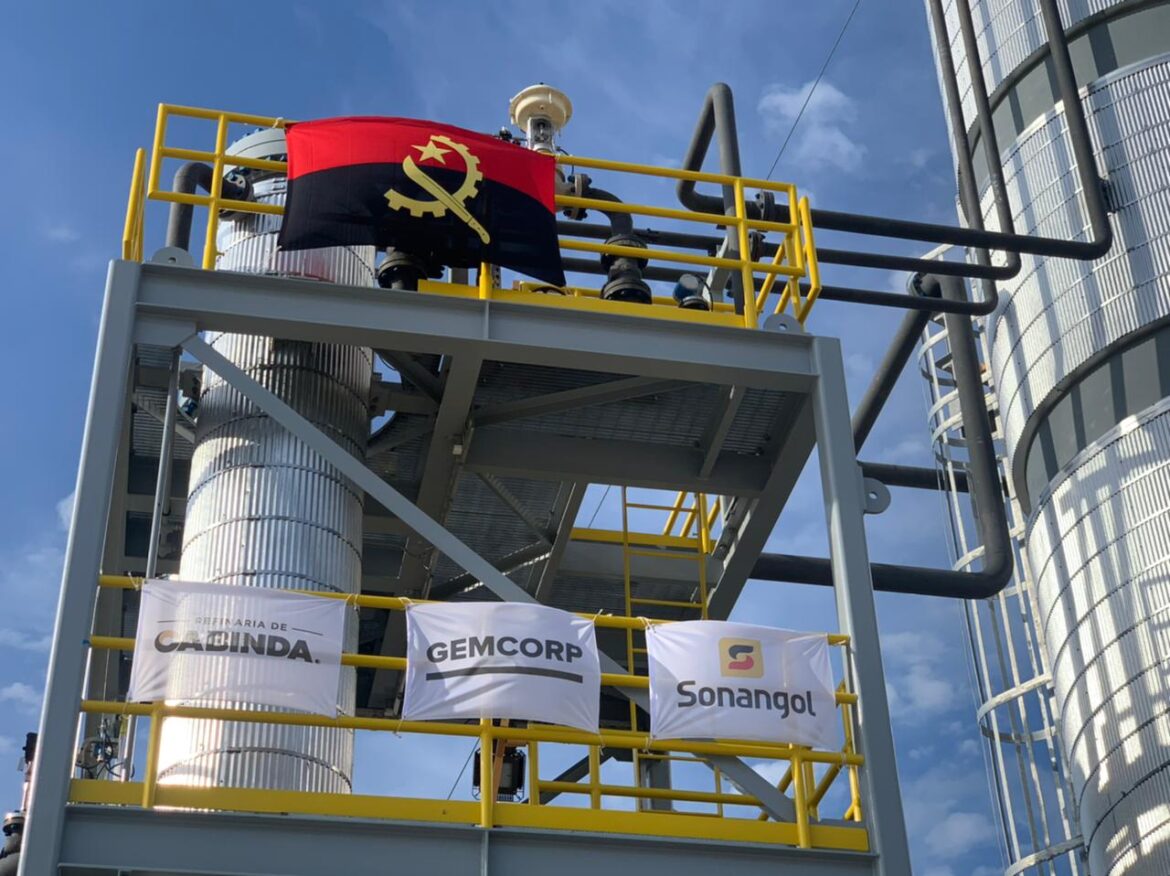Angola’s new Cabinda crude oil refinery is set to commence operations later this year, with a target to reach full production of 30,000 barrels per day by July next year, according to Chief Executive Marcelo Hofke.
Nearly two-thirds of the construction is complete, making Cabinda the most advanced of the three planned refineries. y
These new facilities, including an upgraded Eni-supported plant in Luanda, are crucial for Sub-Saharan Africa’s second-largest oil producer to reduce its reliance on imported refined products for domestic consumption.
“The idea is to start commissioning by the end of this year…and we want to reach full production by the end of July,” Hofke said.
The Cabinda refinery’s first phase will include a crude distillation unit (CDU), desalinator, kerosene treating unit, and auxiliary infrastructure, as well as a conventional float anchoring system, pipelines, and a more than 1.2-million barrel storage terminal.
The first $473 million phase of the modular refinery will produce naphtha, jet fuel, diesel, and heavy fuel oil (HFO).
Naphtha and HFO will be exported, as Angola has limited domestic demand for these products. The facility is expected to satisfy about 10% of Angola’s total demand for refined oil products, increasing to 20% with Phase 2.
Upon completion of the second phase, which will boost production to 60,000 barrels per day, the refinery’s market share is expected to double.
Engineering for the second phase is set to begin once commissioning wraps up by the end of this year, according to Felipe Berliner, Group Chief Investment Officer at Gemcorp Holdings.
Alongside another CDU, Phase 2 of the project will add units for catalytic reforming, hydrotreating, and catalytic cracking that will transform the site into a full-conversion refinery.
Gemcorp holds a 90% stake in the Cabinda refinery, while the remaining shares are owned by the state company Sonangol.
Berliner noted that banks involved in financing the first phase are eager to support the second phase, which is projected to bring the total investment to $1 billion. Key initial funders include Africa Finance Corporation and the African Export-Import Bank.
Berliner expressed confidence that the Cabinda refinery could exceed its planned capacity of 60,000 barrels per day, potentially reaching 90,000 to 120,000 barrels per day on the same site.
![]()




